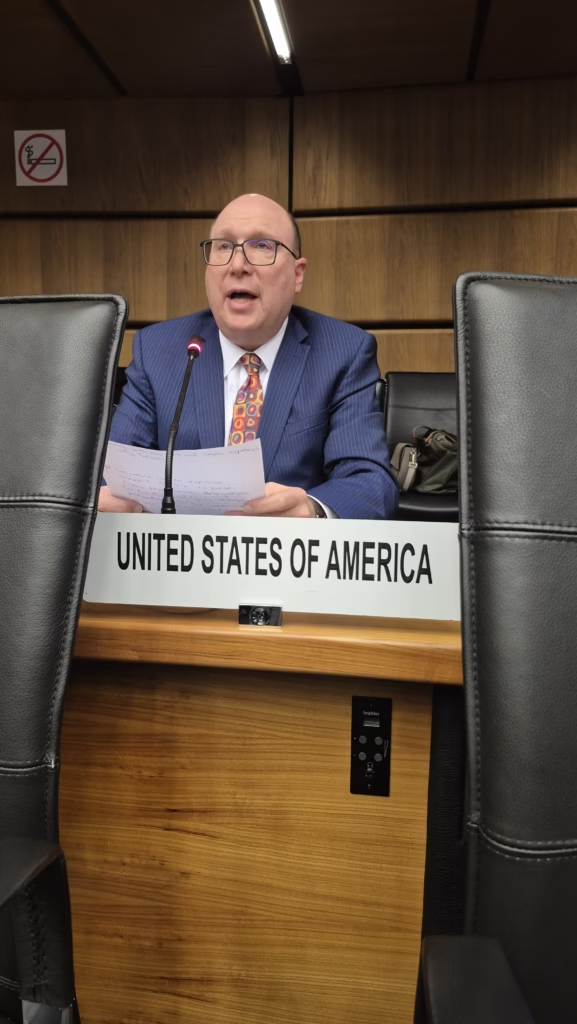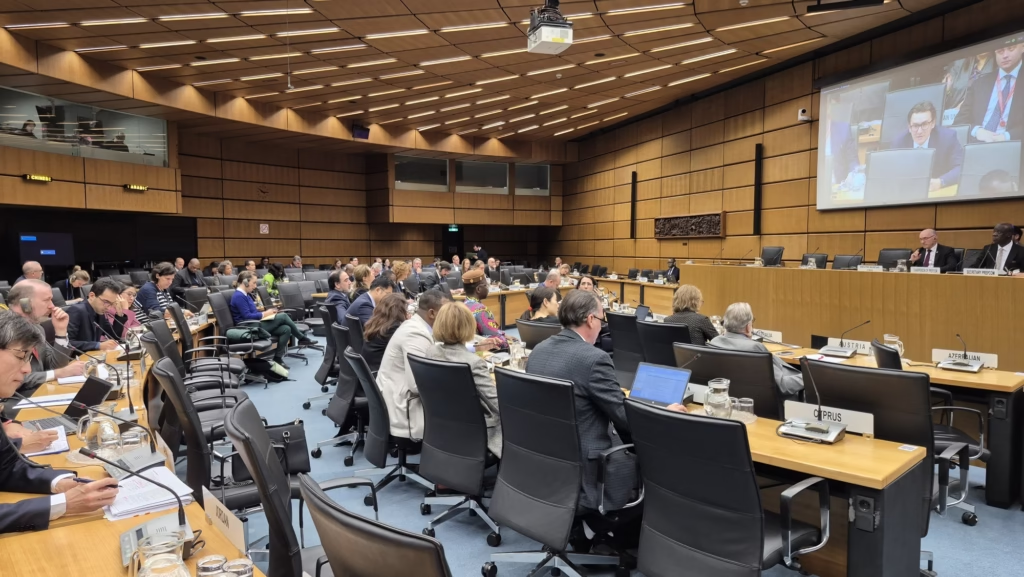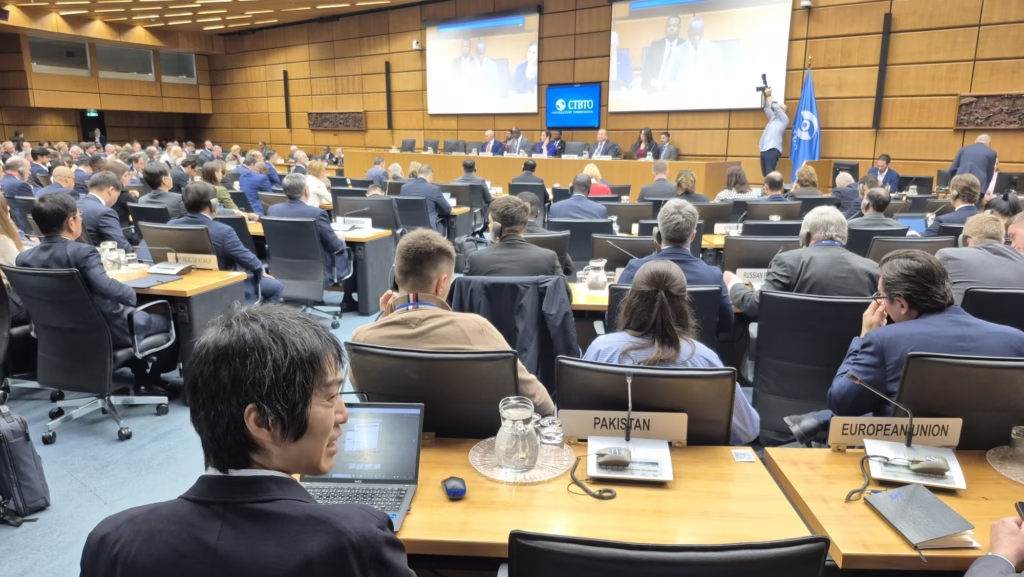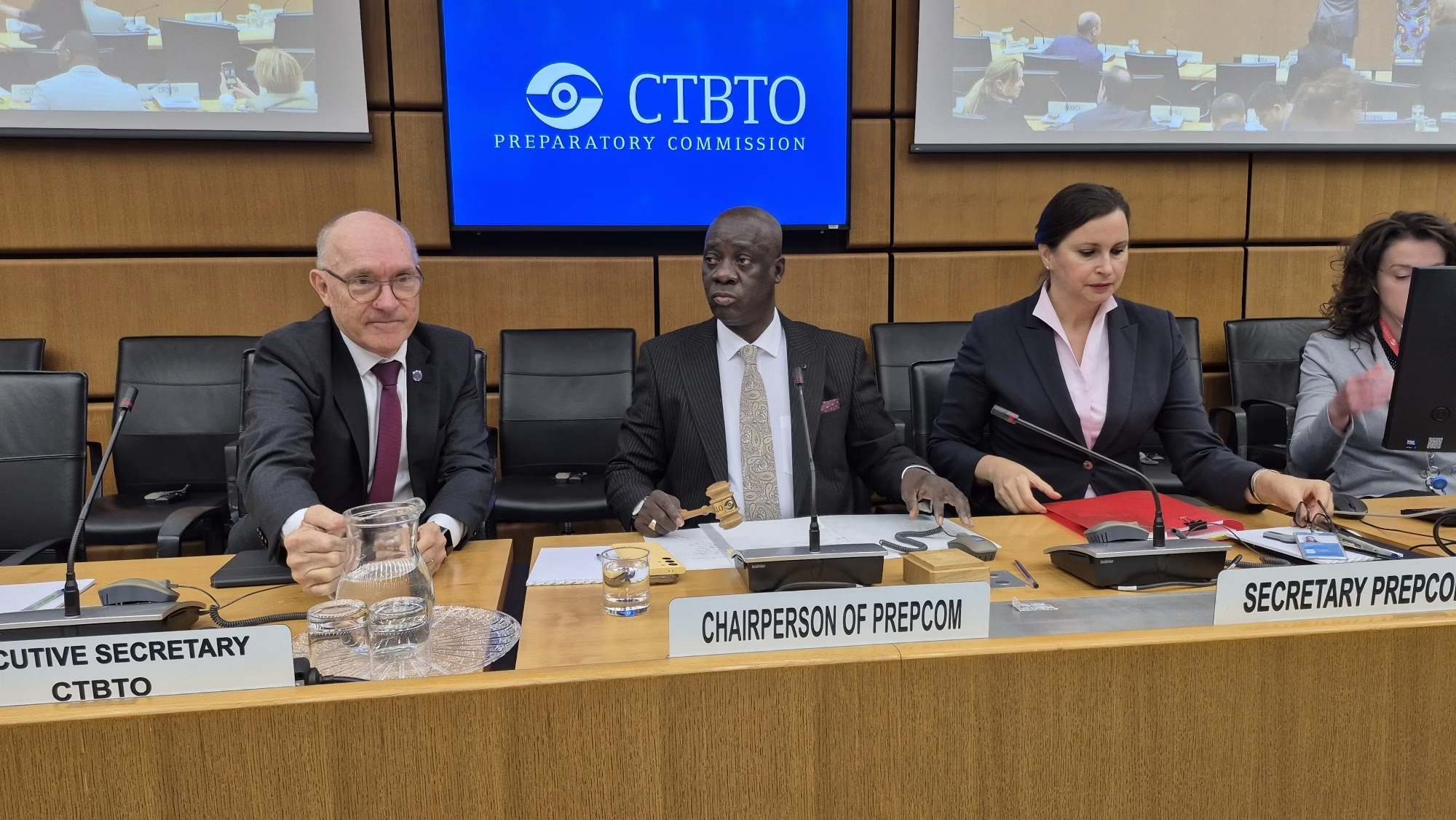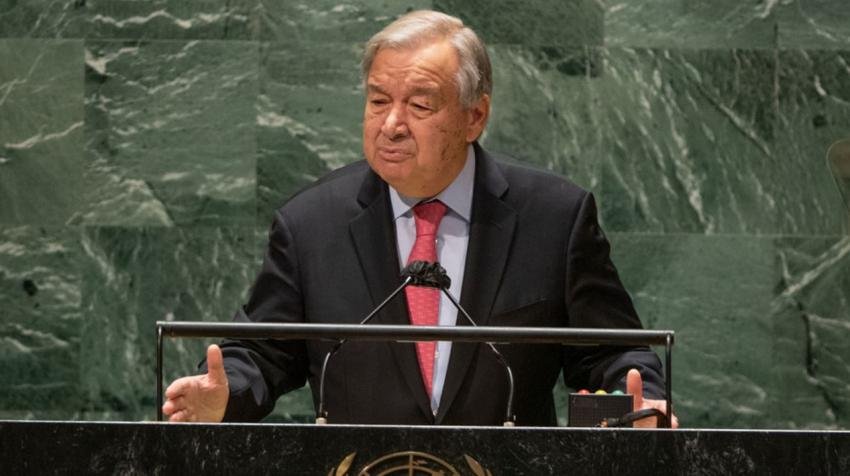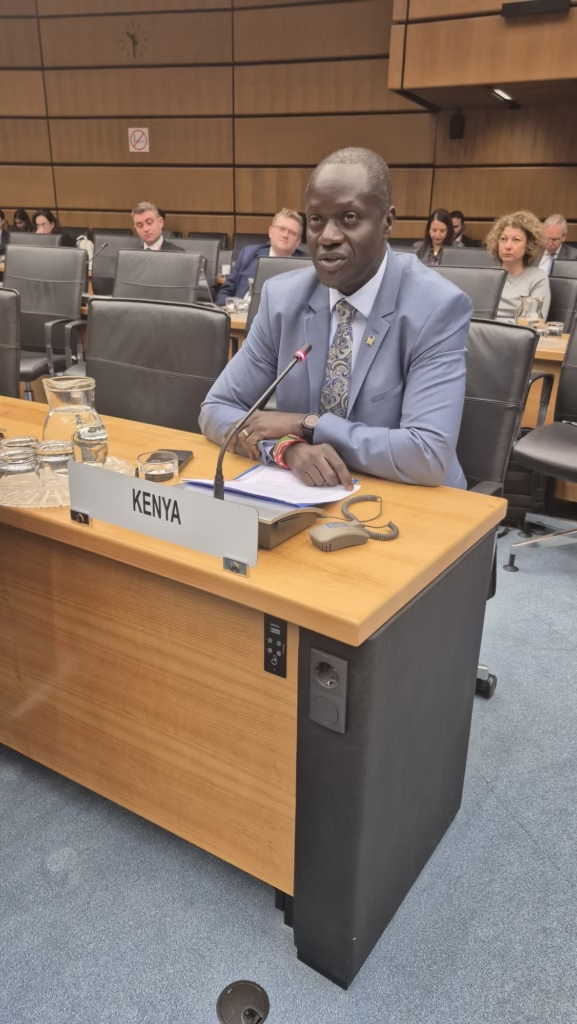
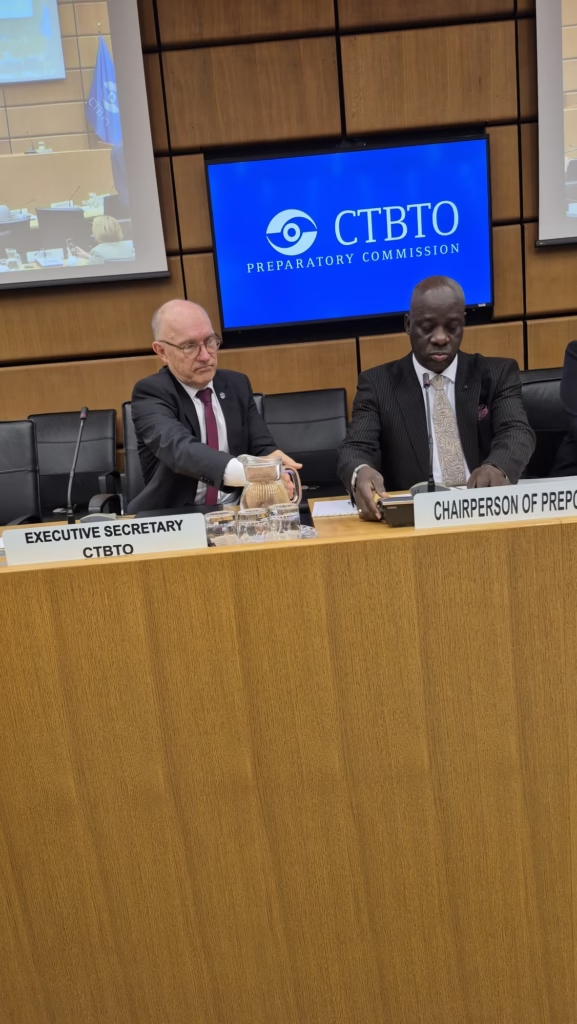
Overview of the 65th Session
The 65th Session of the CTBTO Preparatory Commission took place from November 10 to 13, 2025, serving as a pivotal gathering for member states dedicated to the goal of achieving a world free from nuclear testing. Under the leadership of Chairman Ambassador Cissé Yacouba, this session aimed to reinforce commitment to the Comprehensive Nuclear-Test-Ban Treaty (CTBT) and to enhance the global monitoring and verification mechanisms associated with it.
Key themes of the conference revolved around the enhancement of the verification regime and fostering international cooperation. Participants focused on the importance of the International Monitoring System (IMS), emphasizing the need for technological advancements and increased data-sharing among member states to bolster the effectiveness of the treaty. Discussions included the implications of recent geopolitical developments on nuclear non-proliferation efforts, particularly in light of evolving military technologies and global security dynamics.
Ambassador Yacouba played a crucial role in guiding the deliberations, ensuring that diverse perspectives were acknowledged and that a collaborative spirit prevailed throughout the discussions. Key decisions taken during this session included the endorsement of initiatives aimed at enhancing the CTBTO’s capabilities and a call for increased financial contributions to support ongoing and future projects. Additionally, there was a notable push for member states to ratify the treaty, with a collective agreement to encourage dialogue among nations that have yet to sign or ratify the CTBT.
The session concluded with a reaffirmed commitment to the vision of a nuclear-free world, underscoring the essential role that the CTBT plays in international peace and security. The outcomes of the 65th session are set to shape future engagements, providing a robust framework for member states to collaborate further and strengthen the global nuclear non-proliferation regime.
Establishment and Historical Context of the Preparatory Commission
The Preparatory Commission for the Comprehensive Nuclear-Test-Ban Treaty Organization (CTBTO) was officially established on November 19, 1996, following the adoption of the Comprehensive Nuclear-Test-Ban Treaty (CTBT) by the United Nations General Assembly. This step marked a pivotal moment in the global effort to advance nuclear disarmament and non-proliferation. The commission was created under Article II of the CTBT, aimed at promoting the treaty’s implementation and ensuring its effectiveness in preventing nuclear testing.
The formation of the Preparatory Commission can be traced back to growing international concerns about nuclear proliferation and the environmental and humanitarian consequences of nuclear weapons testing. Following the end of the Cold War, there was a renewed effort towards disarmament which culminated in the CTBT. The inaugural meeting was convened by the UN Secretary-General, who outlined the vision for a world free from nuclear explosives. This gathering set a collaborative framework for member states to work together in support of the treaty’s objectives.
One of the significant milestones in the history of the Preparatory Commission was the establishment of the Provisional Technical Secretariat in Vienna, which serves as the operational arm tasked with the technical implementation of the treaty. This institution laid the groundwork for the development and maintenance of an international monitoring system, crucial for detecting any nuclear explosions worldwide. Over the years, the commission has witnessed various developments, including the setting up of monitoring stations and advancing technologies for verification, all contributing to the broader goal of nuclear non-proliferation.
As the commission progresses, it reflects the enduring commitment of the international community to achieve a safer world through nuclear disarmament. The historical context of the Preparatory Commission illustrates its crucial role in shaping current and future disarmament efforts.
Core Functions and Responsibilities
The Comprehensive Nuclear-Test-Ban Treaty Organization (CTBTO) Preparatory Commission plays an essential role in the advancement and implementation of the Comprehensive Nuclear-Test-Ban Treaty (CTBT). This treaty represents a critical international commitment to banning nuclear explosions, and the Preparatory Commission is tasked with several primary responsibilities that ensure its effectiveness. One of the pivotal functions of the Commission is to promote the signing and ratification of the CTBT. By working with member states and advocating for the significance of the treaty, the Commission aims to increase international participation and adherence to the nuclear test ban.
In addition to advocacy, the Preparatory Commission is charged with the establishment of a comprehensive global verification regime designed to monitor compliance with the treaty. Central to this verification structure is the International Monitoring System (IMS), which consists of a network of sensitive monitoring stations and technologies designed to detect any nuclear explosions worldwide. Through seismic, hydroacoustic, infrasound, and radionuclide monitoring, the IMS plays a crucial role in ensuring that any unauthorized nuclear tests can be identified effectively.
Furthermore, the International Data Centre (IDC) serves as the central hub for processing and analyzing data generated by the IMS. By collecting, analyzing, and disseminating information related to potential treaty violations, the IDC enhances the treaty’s enforcement capabilities. The data and analysis provided by the IDC serve not only to monitor compliance but also to contribute to scientific research in the nuclear field. The collaborative efforts of the Preparatory Commission, alongside the IMS and IDC, highlight the fundamental mechanisms essential for ensuring the successful implementation and compliance with the CTBT, affirming the organization’s commitment to maintaining international peace and security.
CTBTO as an Independent International Organization
The Comprehensive Nuclear-Test-Ban Treaty Organization (CTBTO) functions as an independent entity engaged in the promotion and enforcement of the Comprehensive Nuclear-Test-Ban Treaty (CTBT). Established to prohibit all nuclear explosions for both civilian and military purposes, the CTBTO operates autonomously from the United Nations, despite its collaboration with the UN system. This distinction is crucial, as it allows the CTBTO to maintain its unique operational scope and objectives while leveraging the resources and frameworks provided by the UN.
Financially, the CTBTO’s budget is a critical aspect of its independence. The funding model is primarily supported by member states, which contributes to the financial autonomy of the organization. A significant portion of this budget is allocated towards verification activities, ensuring that the CTBTO can fulfill its mandate efficiently. Specifically, these financial provisions facilitate the establishment and maintenance of the International Monitoring System (IMS), which comprises a network of monitoring stations dedicated to detecting nuclear explosions globally.
Furthermore, the CTBTO’s operations are guided by various agreements, such as IMS facility agreements, which define the roles of participating states in support of the organization’s verification work. Collaborative initiatives, such as tsunami warning partnerships, highlight the CTBTO’s integral role in nuclear safety and emergency response strategies. By fostering relationships with other international organizations, the CTBTO strengthens its operational capabilities, enhancing its capacity to respond to nuclear-related crises effectively.
Overall, the CTBTO’s independent status, supported by a dedicated financial structure and essential agreements, underscores its pivotal role in international efforts to promote nuclear safety and prevent nuclear testing, thus contributing to global security.
